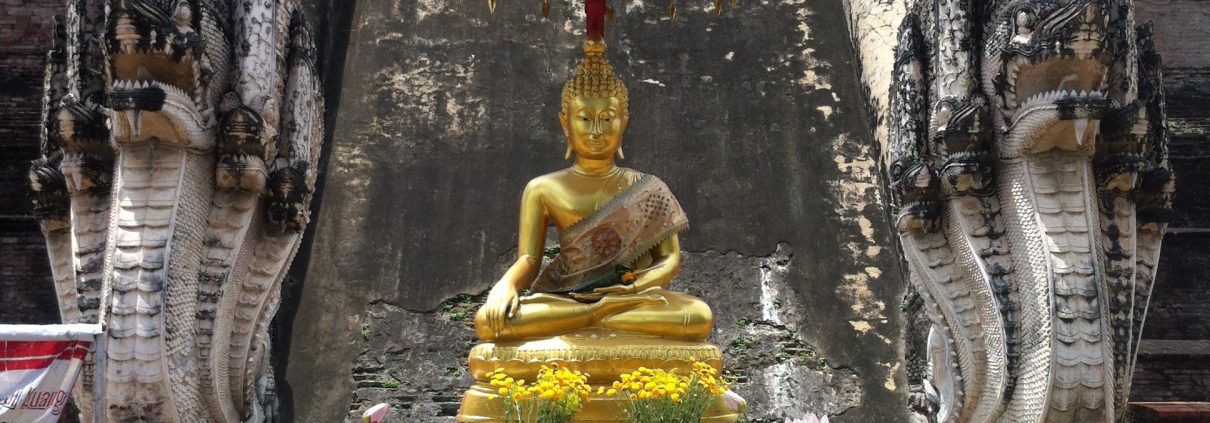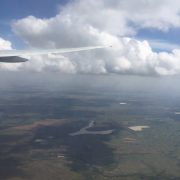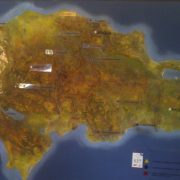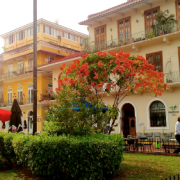A Koan on Climate Change
In the photo: A Buddhist shrine at Wat Chedi Luang Worawihan in Chiang Mai, Thailand.
By Jason Karpman MURP ’16
On my flight to Bangkok I read through an introductory book on Buddhism. It was a gift from a friend who encouraged me to learn about Thailand’s spiritual heritage before moving there for the summer. After spending my first year of graduate school reading almost exclusively about climate change, the invitation to switch gears was especially welcome. Perhaps some Buddhist philosophy would even help me come to terms with the environmental concerns that motivated me to apply to graduate school.
According to my inflight reading, Buddhist philosophy can essentially be distilled into four foundational truths, also known as seals. First, all compounded things are impermanent. Second, all emotions are pain. Third, all things have no inherent existence. Fourth, nirvana is beyond concepts. I am still trying to make sense of the last three, but I’ve already internalized the first seal after taking a hand full of ecology courses at UCLA. Basically everything decomposes, sooner or later.
Once one accepts that impermanence is a fact of life, climate change no longer seems like such a catastrophic event. If nothing lasts forever, why would our weather patterns be an exception to the rule? Volcanic eruptions, fluctuations in solar radiance, and the earth’s wobbling tilt were all destined to disrupt the party eventually. Maybe one day we will drop the word “change” from the term “climate change” altogether, since it’s a bit redundant.
Acceptance, however, can also lead to complacence. As a graduate student researching strategies to reduce greenhouse emissions through carbon capture and storage, I constantly have to ask myself why I care: Given the inevitability of climate change, is it pointless to try and marginally reduce the amount of carbon in the atmosphere? Am I using a teacup to scoop out the water on board a sinking ship? I’ve learned to justify my work by insisting that greenhouse gas reductions will help slow the process of global warming, buying us extra time to adapt. Our climate may not always accommodate us, but perhaps we can extend our check-out time.
Now at my final destination in Chiang Mai, I’ve been thinking about the things I hope to learn over the course of the fellowship. Within the context of my internship at the World Agroforestry Center, I hope to learn more about strategies that balance food security with reforestation. If land is limited, how can we plant more trees while also meeting global food demand? Outside of the office, I hope to learn more about Buddhism, particularly how Buddhists balance acceptance with activism. If all things are impermanent, is anything worth fighting to save? While the latter question may seem like a secondary learning objective for the purposes of this fellowship, I personally can’t disentangle the two. Without a sound philosophy to sustain me at work, I’d be paralyzed by apathy. Something has to get me out of bed, especially with fourteen hours of jetlag testing my faith. Fortunately, nothing lasts forever, not even sleeplessness.


![Clouds and congestion[7]](https://global.luskin.ucla.edu/wp-content/uploads/sites/20/2015/08/clouds-and-congestion7-180x180.jpg)








